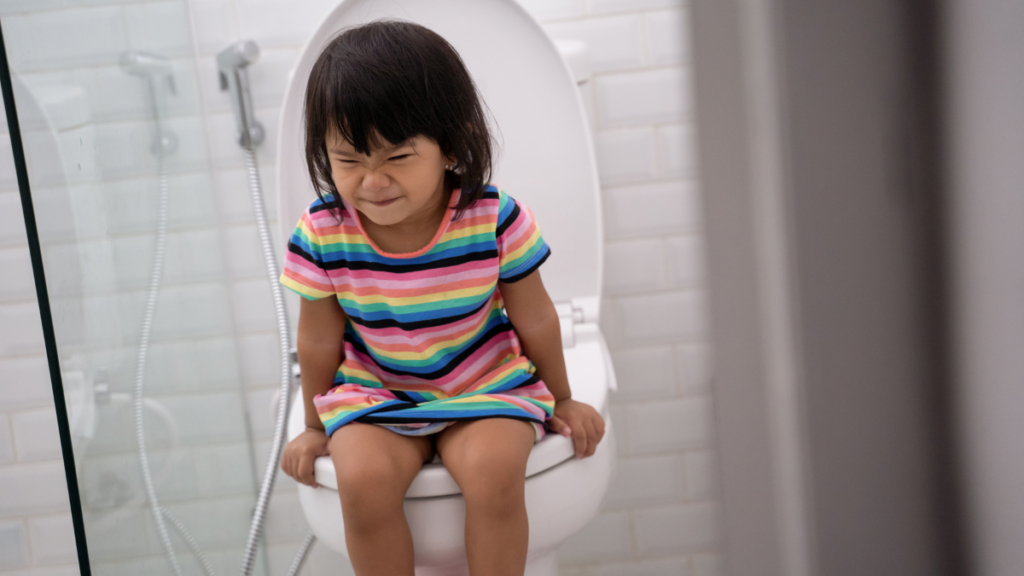
Constipation in toddlers is very common Here’s our expert advice on what to do to help if it happens to your child – and when you need to call a doctor.
Constipation happens when your child doesn’t poop regularly and/or has hard, dry poop that can be painful to push out into a diaper, the potty or the toilet. It’s very common among 2 to 3 year olds and is often a temporary thing. Sometimes, though, it can last for longer and need medical treatment.
Your toddler may be constipated if:
If treated early, simple toddler constipation can usually be resolved. Here are 5 simple steps to try:
A good fluid intake will help soften your child’s poop and make it easier to push out. Offer your toddler plenty of water throughout the day.
Foods full of fibre are nature’s natural laxatives, helping your toddler’s digestive system to work properly and making poops softer. Good fibre-rich choices include:
You may be worried about your child’s constipation but try not to let it show! Stay calm and reassuring when they want to do a poop. Give them lots of praise and encouragement when they do manage one, and don’t make a fuss over any accidents.
If your child is potty-trained and has moved onto using the toilet, get them a step to position under the toilet bowl, so they can sit comfortably with their feet flat on the step. This is a much better position for pooping than having your legs dangling in mid air.
If you toddler is holding onto their poop or is otherwise anxious about doing a poop, don’t force anything. Suggest giving it a go a couple of times a day and let them sit for at least 10 minutes each time (provide some picture books for entertainment).
Moving your body helps move food through your toddler’s gut and can stimulate a need to poop. Aim for 30 to 60 minutes a day of walking, running and jumping around.
Lie your toddler on their back and move their legs separately in a cycling motion to put gentle pressure on their intestine and stimulate bowel movement.
Toddlers can become constipated for a variety of reasons including:
If treated early with the simple remedies above, your child’s constipation can usually be resolved. But if you think your child is withholding their poop, talk to your doctor.
If your toddler isn’t withholding but the constipation continues for more than a week, it can lead to what’s called chronic constipation – where your child’s rectum may become used to being full and your toddler then won’t feel the urge to poop. Liquid poop can build up behind the stuck solid poop and may leak into your child’s pants or cause diarrhoea. The pressure of a full bowel on their bladder can also lead to your child to wet themselves. Do seek your doctors advice if you think your child has chronic constipation. Your doctor may prescribe age-appropriate doses of laxatives, which will soften your toddler’s poop. These can take a little time to work and get your toddler pooping regularly again.
Don’t be tempted to give your child a laxative without first consulting a healthcare professional – and never give your child an adult laxative: they’re too strong for young children and could make your toddler unwell.
It’s rare that constipation is a symptom of something more serious, but if your baby or child is unwell, not gaining weight, or vomiting along with the constipation, then you should always contact your doctor.
© 2023 All rights reserved Baby & Toddler - part of parent promotions